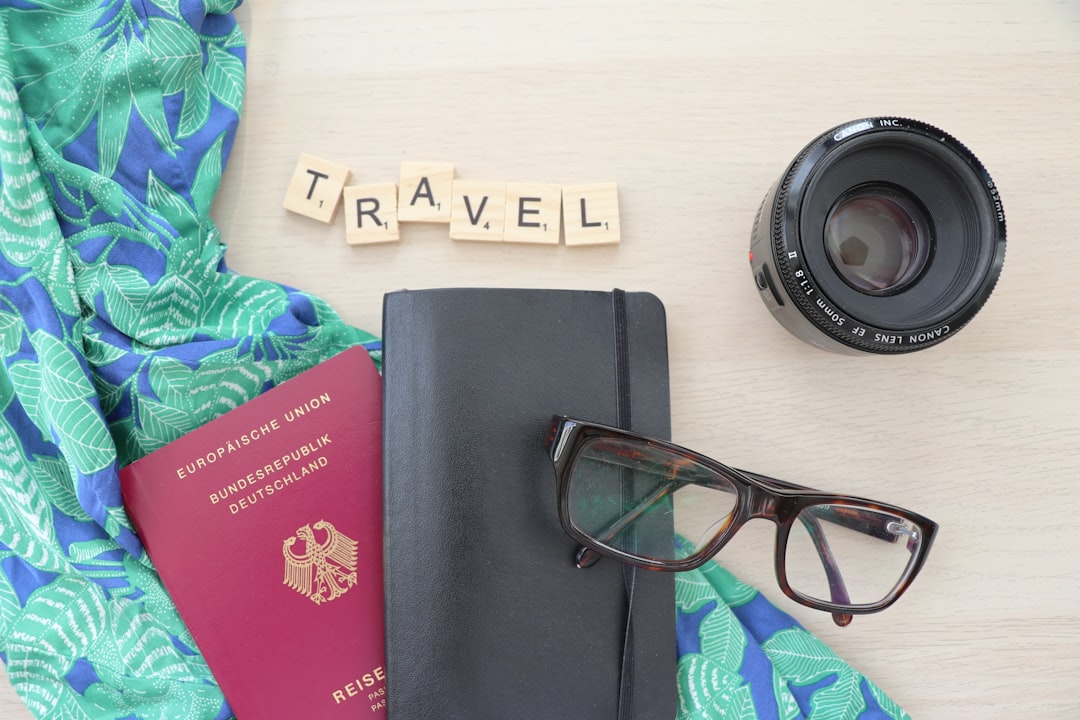Smart Finance and Tax Strategies for Global Nomads

Introduction
The world is more connected than ever before and the traditional notion of “settling down in one place” is losing its grip. Digital nomads, remote freelancers, and location‑independent entrepreneurs are carving out lifestyles that span continents, time zones, and cultures. While the freedom to work from a beach in Bali or a café in Lisbon is intoxicating, it also brings a set of financial and tax challenges that are rarely covered by conventional advice.
This guide is designed to give global nomads a clear roadmap for handling money, staying compliant with tax obligations, and protecting assets while moving across borders. It pulls together practical banking solutions, payment strategies, and tax planning techniques that work for people who are constantly on the move. By the end of the article you will have a toolbox of smart choices that let you focus on the adventure rather than the paperwork.
Understanding the Nomad Lifestyle
Before diving into tactics, it helps to frame the unique financial reality of a global nomad.
- Multiple Jurisdictions – You may spend weeks in one country, months in another, and return to a home base later in the year. Each jurisdiction has its own rules for residency, banking, and taxation.
- Variable Income Streams – Freelance gigs, remote salaries, dropshipping, consulting, and digital product sales can all coexist. Income may be paid in different currencies and through diverse platforms.
- Fluid Legal Status – Visas, work permits, and tax residency status can change rapidly. Keeping records that prove where you lived and worked each month is essential.
- High Mobility Costs – Flights, visas, coworking spaces, and short‑term rentals add up quickly. Efficient payment methods can shave off a noticeable percentage of these expenses.
A solid financial foundation starts with recognizing these variables and planning for them before they become problems.
Core Financial Principles for Nomads
Keep a Central Hub
Having a primary financial hub—typically a bank account in a stable jurisdiction—gives you a single point of reference for all transactions. This hub should:
- Accept multiple currencies or integrate easily with currency conversion services.
- Offer low or no fees for international wire transfers.
- Provide robust online banking tools and two‑factor authentication.
Separate Personal and Business Finances
Mixing personal spending with business revenue can complicate tax filing and make it harder to track profitability. Open a dedicated business account, even if you operate as a sole proprietor. Many fintech providers allow you to create virtual business accounts that link to your personal hub.
Automate Where Possible
Recurring expenses such as coworking memberships, software subscriptions, and insurance premiums can be set up as automatic payments. Automation reduces the risk of missed payments, especially when you are crossing time zones.
Build a Multi‑Currency Buffer
Currency fluctuations can erode earnings. Keep a buffer in the currencies you frequently use (USD, EUR, GBP, AUD, etc.) so you can pay local bills without costly conversion each time.
Prioritize Liquidity
Nomadic life often requires quick access to cash for emergency travel or visa fees. Maintain a portion of your net worth in liquid assets—high‑yield savings accounts, money market funds, or short‑term government bonds.
Banking Solutions Tailored for Nomads
Choosing the right banking partner is a cornerstone of financial stability. Below are categories of institutions that cater to the mobile lifestyle.
Traditional International Banks
Large banks such as HSBC, Citibank, and Barclays offer global accounts that can be opened in one country and accessed worldwide. Benefits include:
- Wide network of ATMs with fee rebates.
- Established reputation that eases visa and rental applications.
- Access to premium credit cards with travel perks.
Drawbacks often involve higher minimum balance requirements and maintenance fees.
Digital‑Only Banks (Neobanks)
Neobanks like Revolut, Wise (formerly TransferWise), N26, and Monzo have become popular among travelers. Key features:
- Instant account opening with just a passport and proof of address.
- Multi‑currency wallets that allow you to hold, spend, and convert money at near‑mid‑market rates.
- Real‑time notifications and budgeting tools built into the app.
Be aware that some neobanks limit the total amount you can hold or withdraw per month unless you upgrade to a paid tier.
Offshore Accounts
For those who need greater privacy or want to avoid certain tax regimes, offshore jurisdictions such as Singapore, Hong Kong, and the Cayman Islands offer banking options with:
- Strong asset protection laws.
- Low corporate tax rates.
- Ability to open accounts remotely in many cases.
These accounts often require a higher initial deposit and thorough source‑of‑wealth documentation.
Hybrid Approaches
A pragmatic strategy is to combine a traditional international bank for large, long‑term holdings with a neobank for daily spending. This dual system gives you the stability of a legacy institution and the flexibility of a fintech solution.
International Payment Methods
When you earn in one currency and spend in another, the cost of moving money can quickly eat into profits. Below are proven methods to minimize fees and maximize speed.
Direct Bank Transfers
Wire transfers through the SWIFT network are reliable but can carry hefty fees (up to $30 per transaction) and unfavorable exchange rates. Use them for large, infrequent payments such as salary deposits or major purchases.
Peer‑to‑Peer Transfer Services
Platforms like Wise, Remitly, and OFX specialize in low‑cost currency conversion. Their advantages:
- Transparent fee structures displayed before you confirm the transfer.
- Exchange rates that sit within a few basis points of the interbank rate.
- Ability to send money directly to a recipient’s local bank account.
These services are ideal for freelancers receiving client payments from abroad.
Cryptocurrency Payments
Bitcoin, Ethereum, and stablecoins such as USDC provide an alternative path for cross‑border transfers. Benefits include:
- Near‑instant settlement (especially on layer‑2 solutions).
- Minimal fees for large amounts when using stablecoins.
- Ability to bypass banking restrictions in countries with limited financial infrastructure.
Risks involve price volatility (unless you use stablecoins) and regulatory uncertainty. Always convert crypto to fiat through a reputable exchange before spending locally.
Card‑Based Solutions
International prepaid cards and travel credit cards can be loaded with multiple currencies. They are useful for:
- Immediate access to funds without waiting for a bank transfer.
- Avoiding cash handling in unfamiliar locations.
- Earning travel rewards such as airline miles or hotel points.
Look for cards that do not impose foreign transaction fees and that support contactless payments.
Managing Credit Cards on the Move
A well‑chosen credit card can be a financial lifesaver. Here’s how to select and use them wisely.
Choose No‑Foreign‑Transaction‑Fee Cards
Many major issuers offer cards that waive the typical 2‑3 % fee on overseas purchases. Examples include the Chase Sapphire Preferred, Capital One Venture, and the HSBC Premier World Mastercard.
Leverage Travel Rewards
Cards that reward points on travel, dining, and online spending can quickly accumulate value. Convert points to airline miles, hotel stays, or statement credits to offset future travel costs.
Keep an Eye on Exchange Rates
Even without a foreign transaction fee, the card network’s exchange rate applies. This rate is usually close to the interbank rate, making credit cards a cost‑effective way to pay in foreign currency.
Set Up Alerts and Limits
Enable real‑time transaction alerts to detect fraudulent activity early. Also, keep a modest credit limit that you can comfortably repay each month to avoid high interest charges.
Use Virtual Card Numbers
Some issuers provide disposable virtual card numbers for online purchases. This adds a layer of protection against data breaches on foreign e‑commerce sites.
Currency Management Strategies
Fluctuating exchange rates can be both an opportunity and a threat. Below are tactics to tame currency risk.
Dollar‑Cost Averaging Into Foreign Currencies
If you know you will need euros for the next three months, spread out your purchases rather than converting a lump sum all at once. This smooths out the impact of short‑term market swings.
Forward Contracts and Hedging
For larger, predictable expenses (e.g., a six‑month coworking lease in Japan), consider using forward contracts offered by some banks and fintech platforms. A forward contract locks in an exchange rate for a future date, eliminating uncertainty.
Multi‑Currency Accounts
Accounts that let you hold balances in several currencies let you convert only when rates are favorable. Wise’s borderless account and Revolut’s multi‑currency wallet are prime examples.
Use Stablecoins for Short‑Term Holding
When you need to park money temporarily while waiting for a better conversion rate, stablecoins provide a fiat‑linked alternative that can be moved instantly between exchanges.
Tax Residency Basics
Taxation is often the most complex aspect of nomadic life. Understanding residency rules is essential to avoid double taxation and penalties.
Physical Presence Test
Most countries determine tax residency based on the number of days you spend within their borders. A common threshold is 183 days in a calendar year. Keep a detailed travel log to prove your whereabouts.
Center of Vital Interests
If you maintain a permanent home, family, or business in a particular country, tax authorities may deem you a resident even if you spend less than 183 days there. This test looks at where your personal and economic ties are strongest.
Domicile vs. Residency
Domicile is a legal concept that reflects where you consider your permanent home to be. It can affect inheritance tax and other long‑term obligations. Changing domicile usually requires a clear intention to settle permanently in a new country.
Dual Residency Agreements
Many nations have bilateral tax treaties that prevent double taxation. These treaties outline tie‑breaker rules—typically based on permanent home, center of vital interests, and habitual abode. Familiarize yourself with the treaty between any two countries you spend significant time in.
Filing Obligations
Even if you are not a tax resident, you may still need to file informational returns (e.g., the US FATCA Form 8938 or the UK “Foreign Income” schedule). Ignoring these can trigger hefty fines.
Strategies to Minimize Tax Exposure
Below are actionable steps that help you keep tax liability under control while maintaining compliance.
Choose a Nomad‑Friendly Tax Home
Some jurisdictions actively market themselves as tax havens for digital nomads. Countries like Portugal (Non‑Habitual Resident regime), Georgia (Small Business Status), and the United Arab Emirates (zero personal income tax) offer attractive tax rates for qualifying individuals.
- Portugal – Offers a flat 20 % rate on qualifying professional income for ten years, plus exemptions on foreign dividends and capital gains under certain conditions.
- Georgia – Allows freelancers to register as “Individual Entrepreneurs” with a 1 % tax on revenue up to a set limit.
- UAE – No personal income tax, but you must establish residency through a visa and a local address.
Incorporate a Foreign Company
Forming a corporation in a low‑tax jurisdiction can separate personal income from business profit. Key considerations:
- The company must have genuine substance (office, staff, local director) to satisfy anti‑avoidance rules.
- You will need to file corporate tax returns in the jurisdiction of incorporation.
- Dividends paid to yourself may be subject to withholding tax in the source country, but many treaties reduce or eliminate this.
Take Advantage of Tax Treaties
When you earn income in a country that has a treaty with your tax home, you can often claim reduced withholding rates or exemptions. Submit the appropriate treaty claim forms (e.g., IRS Form W‑8BEN) to the payer.
Claim Foreign Earned Income Exclusion (FEIE)
If you are a US citizen or green card holder, the FEIE allows you to exclude up to $120,000 (adjusted annually) of foreign earned income, provided you meet the Physical Presence Test or the Bona Fide Residence Test. Keep meticulous records of travel dates and work location.
Utilize Foreign Tax Credits
If you pay tax in a foreign jurisdiction, you may claim a credit against your home‑country tax liability. This prevents double taxation but requires proper documentation of taxes paid.
Optimize Deductions
- Home Office – Even if you work from cafés, you can allocate a portion of your rent, internet, and utilities as a home‑office deduction in many tax regimes.
- Travel Expenses – Business‑related travel costs, including flights, accommodation, and meals, are generally deductible.
- Health Insurance – Premiums paid for international health plans can be deducted in certain jurisdictions.
Managing Income Streams Across Borders
Nomads often juggle multiple revenue sources. Organizing them efficiently simplifies accounting and tax compliance.
Centralize Invoicing
Use a single invoicing platform (e.g., FreshBooks, Invoice Ninja) that can issue invoices in multiple currencies and integrate with your accounting software. This provides a clear audit trail.
Separate Personal and Business Bank Accounts
Even if you operate as a sole proprietor, maintain distinct accounts for each client or project. This helps allocate expenses and income correctly.
Track Country‑Specific Withholding
Some clients will withhold tax at source (e.g., EU payers applying VAT on services). Record these amounts separately to claim refunds or credits later.
Convert Currency Strategically
When receiving payments in a high‑interest currency (e.g., USD), consider converting to a lower‑interest currency only when needed for local expenses. This preserves the purchasing power of your earnings.
Crypto and Digital Assets for Nomads
Digital assets have become an integral part of many nomads’ portfolios. They offer portability and a hedge against local currency depreciation.
Choose Reputable Exchanges
Select exchanges that support fiat withdrawals in multiple currencies and have strong security records. Examples include Kraken, Binance, and Coinbase.
Keep Detailed Transaction Logs
Tax authorities in many countries now require reporting of crypto transactions. Use portfolio trackers (e.g., CoinTracker, Koinly) to automatically generate capital gains reports.
Understand Tax Treatment
- Capital Gains – Most jurisdictions treat crypto sales as capital gains. Holding periods determine short‑term vs. long‑term rates.
- Income – Receiving crypto as payment for services is treated as ordinary income at the fair market value on the receipt date.
- Staking and Yield – Rewards earned from staking or lending are usually taxable as ordinary income.
Use Stablecoins for Day‑to‑Day Spending
Stablecoins pegged to USD or EUR can be used for fast cross‑border payments with minimal conversion fees. Keep a small reserve for everyday purchases and convert to local fiat only when necessary.
Legal Considerations Beyond Taxes
Financial stability also depends on staying within the legal frameworks of the countries you visit.
Visa Compliance
Many digital nomad visas (e.g., Estonia, Barbados, Croatia) have income thresholds and require proof of health insurance. Failure to meet these conditions can result in visa revocation.
Business Registration
If you operate a formal business, you may need to register locally if you exceed a certain revenue or employee count. Some countries require a local tax number even for foreign‑registered entities.
Data Protection
When handling client data, be aware of GDPR (EU) and other privacy laws. Using cloud services with data residency options can help you stay compliant.
Anti‑Money‑Laundering (AML) Rules
Banks and fintech platforms often request source‑of‑wealth documentation for large deposits. Have contracts, invoices, and bank statements ready to satisfy these checks.
Insurance Essentials for the Mobile Lifestyle
Protection against health, property, and liability risks is vital for uninterrupted travel.
International Health Insurance
Choose a plan that covers:
- Hospitalization and outpatient care in multiple regions.
- Medical evacuation back to your home country.
- Pre‑existing condition coverage (if needed).
Providers such as SafetyWing, World Nomads, and IMG offer flexible policies tailored to nomads.
Travel Insurance
Separate from health coverage, travel insurance protects against trip cancellations, lost luggage, and adventure sports injuries. Look for policies that allow multiple trips within a year.
Liability and Professional Indemnity
If you provide consulting or freelance services, professional liability insurance shields you from client lawsuits. Some global insurers offer coverage that follows you across borders.
Property and Gadget Insurance
Your laptop, phone, and camera are essential tools. Insure them against theft, accidental damage, and loss. Some travel insurance packages include gadget coverage, or you can add a standalone policy.
Building a Safety Net While on the Move
Even with meticulous planning, unexpected events happen. A robust safety net gives you peace of mind.
Emergency Cash Reserve
Maintain at least three months of living expenses in a highly liquid account that can be accessed globally without fees. A combination of a high‑yield savings account and a multi‑currency wallet works well.
Credit Line Access
Having a revolving credit line (e.g., a personal line of credit from a bank) can provide additional liquidity for large, unplanned expenses such as emergency flights.
Diversify Investments
Allocate assets across:
- Global equities (via low‑cost index funds).
- Fixed income (short‑term bonds or bond ETFs).
- Real assets (precious metals, REITs).
- Crypto (as a small percentage for growth potential).
Diversification reduces the impact of any single market downturn on your overall net worth.
Practical Checklist for Smart Finance and Tax Management
Below is a concise list you can use as a reference whenever you set up a new base or change your travel plans.
- Choose a Primary Bank – Open a multi‑currency account with low fees.
- Set Up a Neobank – Use for daily spending and instant currency conversion.
- Create a Business Entity – If your income level justifies incorporation, select a jurisdiction with favorable tax rules.
- Register for a Nomad Visa – Verify income thresholds and health insurance requirements.
- Obtain International Health Insurance – Ensure coverage in all countries you plan to visit.
- Establish a Credit Card Strategy – No foreign transaction fees, rewards, and virtual numbers.
- Track Days in Each Country – Use a spreadsheet or app to record arrival and departure dates.
- Maintain Detailed Invoices – Include currency, exchange rate, and client location.
- Automate Savings – Set up recurring transfers to an emergency fund.
- Monitor Exchange Rates – Use alerts to convert when rates are favorable.
- File Tax Returns Promptly – Keep copies of all supporting documents for at least seven years.
- Review Treaties Annually – Stay updated on changes that could affect withholding or credits.
- Secure Crypto Records – Export transaction histories and generate tax reports.
- Renew Visas and Insurance – Set reminders 30 days before expiry.
Final Thoughts
Living a location‑independent life is a rewarding adventure, but it demands disciplined financial and tax management. By establishing a solid banking foundation, leveraging low‑cost international payment tools, and mastering the nuances of tax residency, you can protect your earnings and focus on the experiences that matter most.
Remember that the landscape is constantly evolving—new fintech products, shifting visa policies, and changing tax treaties all affect the optimal strategy. Stay informed, keep thorough records, and don’t hesitate to consult a tax professional who understands the nomadic context. With the right systems in place, you can travel the world confidently, knowing that your finances are as mobile and resilient as you are.
Random Posts

Essential Software Every Remote Professional Should Use
Master remote work with essential tools: instant messaging like Slack, high definition video calls such as Zoom, and asynchronous voice apps. Streamline communication, stay connected and boost productivity.
1 day ago

Unlocking the Secrets of Digital Entrepreneurship on the Go
Learn how to turn freedom into a competitive edge, master the mobile mindset, and launch a scalable digital business from anywhere, whether a beach café or a mountain cabin.
1 month ago

Building A High Performance Remote Workspace From Anywhere
Learn how to build a high performance remote workspace that works anywhere, covering hardware, reliable connectivity, software stack, environment and habits so you stay focused, productive and secure
2 months ago

Mastering Light Travel Without Sacrificing Comfort
Learn how to travel light while keeping the comforts that boost productivity, health and happiness. Discover minimalist mindsets, multipurpose gear and sustainable packing tricks that fit in any overhead bin without compromise.
2 months ago

Affordable Cities for Digital Nomads in Latin America
Discover why Latin America is a digital nomad hotspot and learn how to pick an affordable city, using budget, fast internet, coworking spaces and friendly visas to find your ideal remote work base.
2 weeks ago
Latest Posts

Essential Software Every Remote Professional Should Use
Master remote work with essential tools: instant messaging like Slack, high definition video calls such as Zoom, and asynchronous voice apps. Streamline communication, stay connected and boost productivity.
1 day ago

Mastering Remote Work Productivity for Digital Nomads and Freelancers
Learn proven habits, tools, and tactics that help digital nomads and freelancers stay focused, deliver quality work, and maintain a sustainable lifestyle while traveling the world.
1 day ago

Tech‑Friendly European Towns Perfect for Remote Living
Discover Europe’s best small towns where fast internet, affordable living and vibrant tech communities let you work remotely while soaking up historic charm, lakeside views or mountain air.
1 day ago